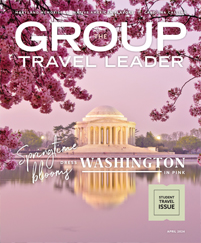As you build trips for your friends, one of the most essential decisions that you’ll make is to pick a transportation provider. Your options include planes, trains and motorcoaches, each of which have distinct advantages and drawbacks for groups.
Here’s our guide to doing business with transportation providers, and finding the option that will present the best price and the best experience.
Motorcoaches
If you have a big enough group, renting a small (or even full-size) bus or motorcoach can prove the most cost-effective way of traveling, and it comes with the added benefit of a professional driver. There are hundreds of motorcoach companies around the country, which means that there are likely several providers that operate both near you and in the destinations you want to visit. You should contact multiple coach companies to get price quotes, since the prices and levels of service can vary substantially from one company to the next.
When gathering price quotes, make sure to provide a relatively detailed itinerary including all of the sites, attractions and other tour features (such as an evening meal or theater performance) that will require usage of the coach. It should go without saying that additional services requested after a charter rate has been quoted are likely to result in added fees.
Two other subjects that need to be considered are potential fuel surcharges, plus the need to make sure that coach drivers receives adequate gratuities. Some travel planners use just one coach company, preferring the ability to request individual trusted drivers and (sometimes) preferential rates. The other side of this coin is that relying on only one coach operator may lead to rates being steadily increased over time. And if your preferred coach company doesn’t have the vehicle you need available at the time you want it, you may need to seek another provider.
Airlines
Airlines are generally not in the customer service business, but are primarily interested in filling seats with warm bodies at the highest fares they can get away charging. Travel planners must play “let’s make a deal” with competing carriers in order to get the most favorable rates and terms. They must also expect to pay an upfront deposit (usually $40 to $50 a seat) to guarantee a given fare for a group “block” of seats, within 30 days of a reservation being made.
Unfortunately, “utilization” clauses and other requirements imposed by some air carriers can easily result in deposits and blocks of seats being forfeited. The entire process of obtaining group air space can be a headache for even the most experienced professional tour operators, so if you don’t want to play this ever-changing game for yourself, it would be smart to enlist the services of a professional travel agent.
Rail Lines
Although Amtrak and other long-haul passenger railroads tend to be more user-friendly than the airlines, several of the same caveats apply. At least Amtrak has sales representatives for travel planners to work with.
On the other hand, there are a number of professional travel agents who specialize in rail travel, and are recipients of Amtrak “Golden Spike” Awards. Such agents have extensive experience in dealing with this mode of travel that can be invaluable to group travel planners.











